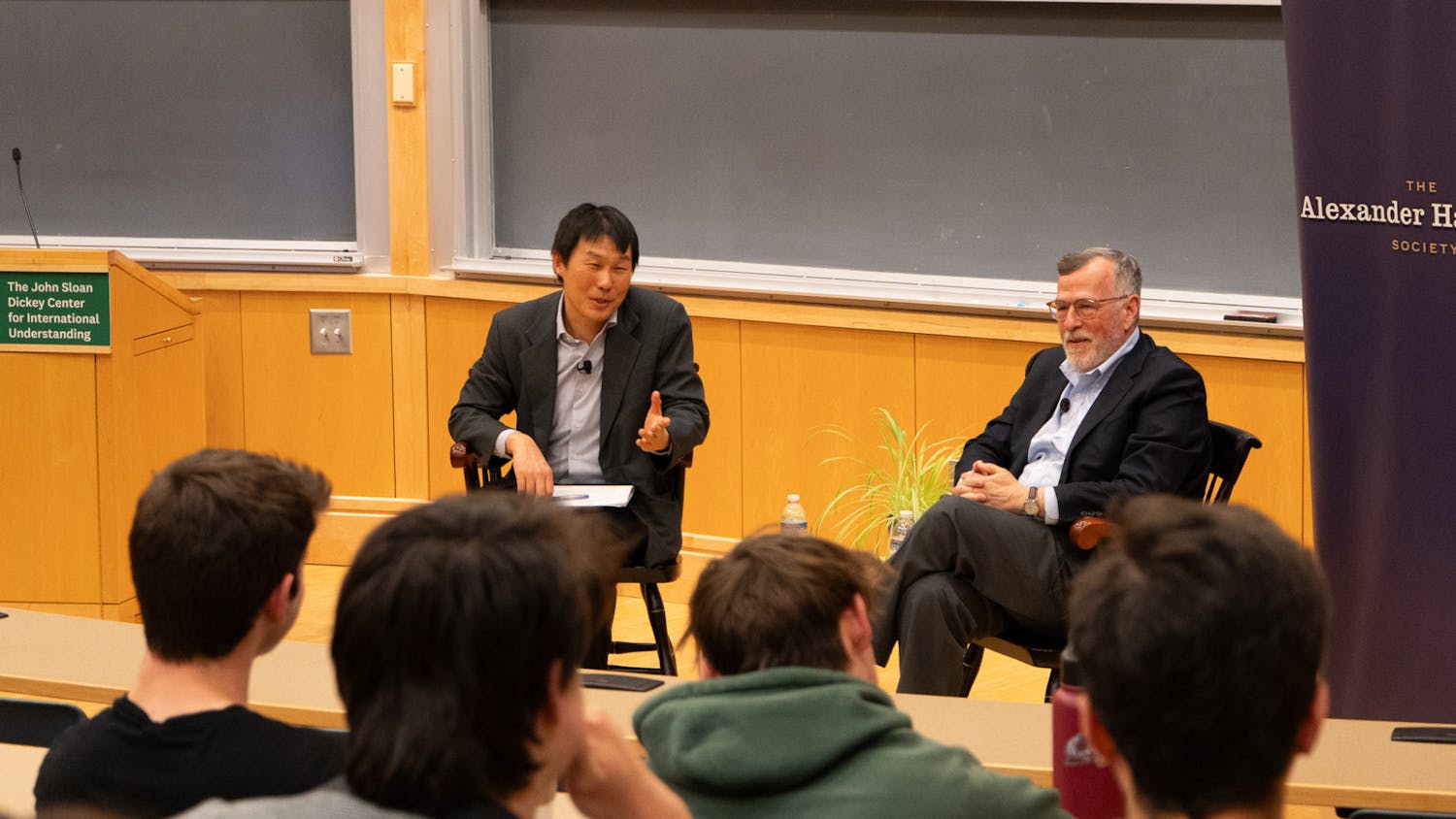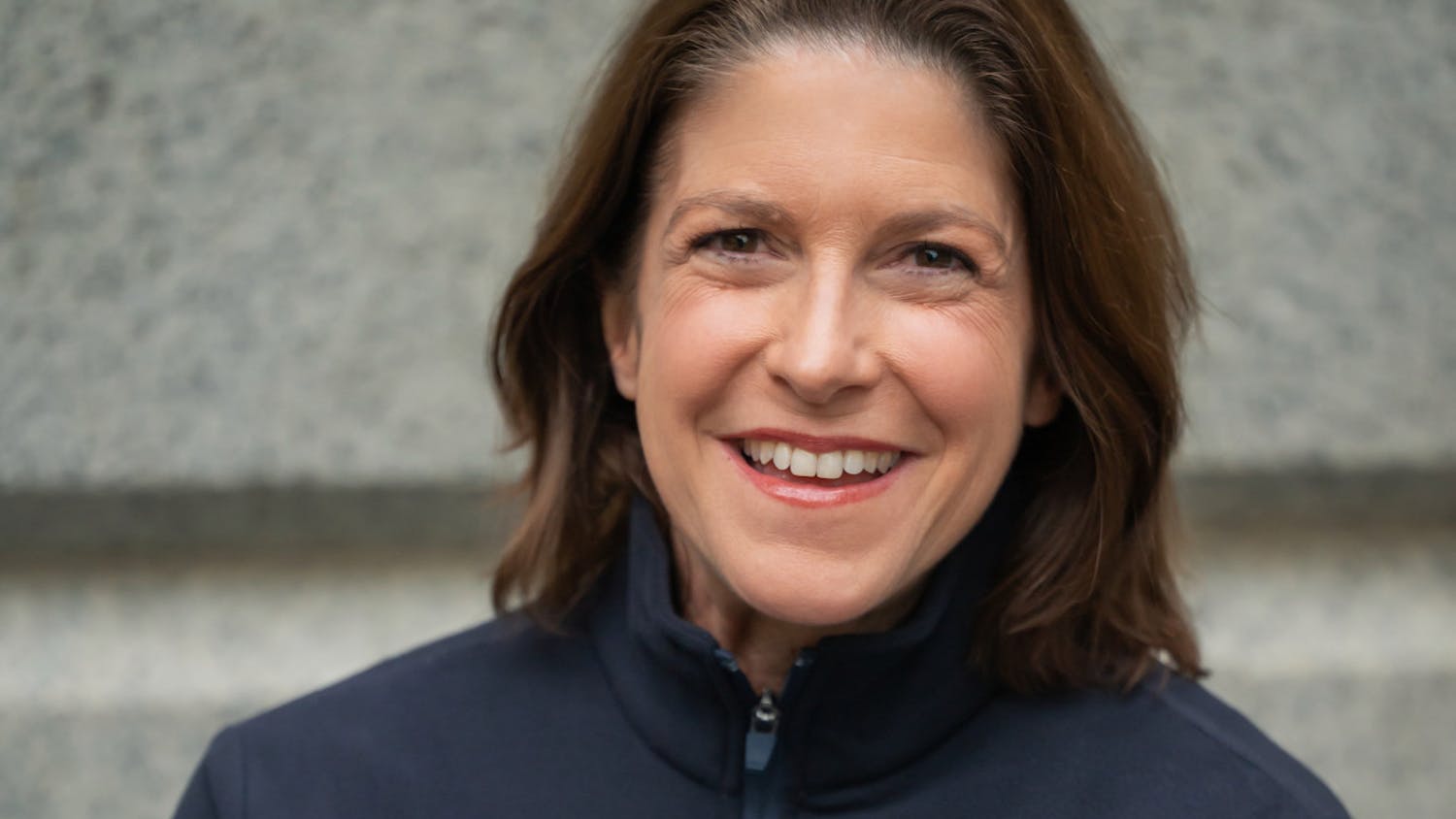Both global markets and the U.S. domestic economy will remain "volatile" over the next several years as countries struggle to reduce deficits and avoid defaulting on loans, Lou Taylor Tu'85, senior vice president at the New-York-based hedge fund Paulson & Co., warned listeners at a Saturday meeting organized by the Dartmouth Athletes in Business and Leadership organization in the Rockefeller Center. Recounting his rise through the financial world to his current position at a $30 billion hedge fund, Taylor repeatedly attributed his personal success and the world's current financial turbulence to passion, courage, change and prayer.
Passion which Taylor defined as finding satisfaction and enjoyment in one's work is necessary for the high-stress jobs available in the financial sector, he said.
"If you're going to be there from eight in the morning to nine at night, you'd better be sure you like your job," Taylor said.
Courage, or "the willingness to risk failure in pursuit of innovation," has lead to some of the most notable successes of Taylor's career, he said. Taylor's discussion largely drew from these personal stories, as he recounted to the audience of 38 that, following the 1980s commercial real estate bubble burst, Taylor's job at a commercial real estate agency became irrelevant to the company.
"I was walking around with nothing to do, and that's like having a big red sign on your back saying layoff,'" he said.
With four family members to feed at home and two mortgages to pay, Taylor said he decided to take a risk and became involved with the transition of real estate from a public to a private industry.
After this "huge shift" in the structure of the U.S. real estate industry, Taylor was the first person to identify the value of certain retail locations. He realized, for example, that certain Sears locations were worth more to Deutsche Bank Equity Research where he worked at the time as real estate than as functioning stores. This counter-intuitive insight garnered his company significant profits, he said.
"I wasn't afraid to try something new, something radical," Taylor said. "And there were plenty of people telling me, This is the dumbest idea I ever heard.'"
Openness to change, the third attribute identified by Taylor as vital to success, can set young workers apart from less motivated peers, according to Taylor.
"On Wall Street, everyone's smart, but some people are being productive and some people are there from eight to eight messing around on Facebook," he said.
Undergraduate students should constantly seek feedback from professors and peers in order to improve their own work style and productivity, according to Taylor.
"Don't be afraid of failure," Taylor said. "You're going to hear criticism for the first time eventually, so it might as well be now when you can really learn from it."
Taylor's final advice to students aspiring to go into the financial sector was frequent prayer.
"Don't be afraid to pray," he said. "It's a very competitive world out there and you're going to need all the help you can get, and some of that help is going to come from above."
The workforce will be especially competitive over the next several years, Taylor said. Investment banks will not be able to take the same risks they once could and thus will have smaller profits, while growing deficits will curtail government spending.
"The next few years are going to be about cutting Medicare and defense growth down to 1 percent," he said. "Otherwise we're going to be in the same position as Greece by 2020."
After one student asked about the repercussions of the European financial crisis, Taylor responded that the state of European finances will depend on how other countries deal with Greece's "inevitable default."
"The European Financial Stability Facility has created a plan to bolster Greece that must pass through every European parliament before implementation," Taylor said.
The degree to which European nations will be harmed by Greece's default is difficult to predict given the considerable length of time it takes each individual country to pass bailout legislation, according to Taylor.
Austerity measures drastic cuts in public spending seem to be working in Ireland, Portugal and possibly Spain, Taylor said. Even if a worst-case scenario unfolds in Europe, U.S. banks have much more available capital and are better prepared for global financial shocks than they were three years ago, he said.
Despite this reassurance, Taylor said aspiring financiers should avoid risky investments at the moment.
"It's just so volatile right now," he said. "Get your money in cash and protect your principal."
Taylor's speech was co-sponsored by Women in Business and the Rockefeller Center.



